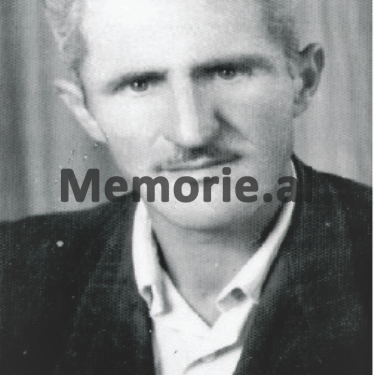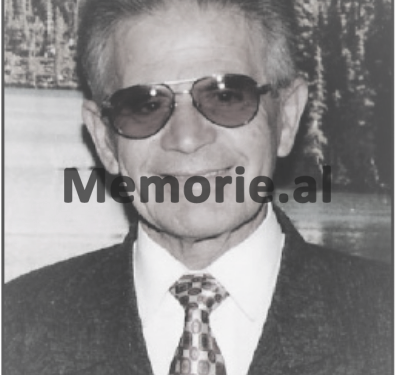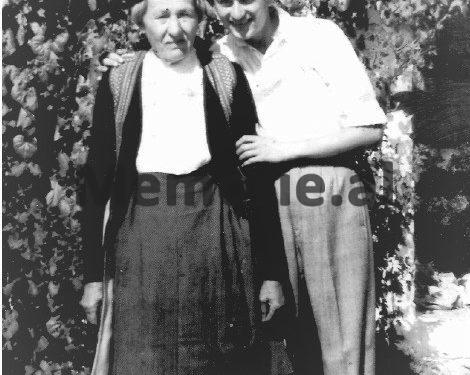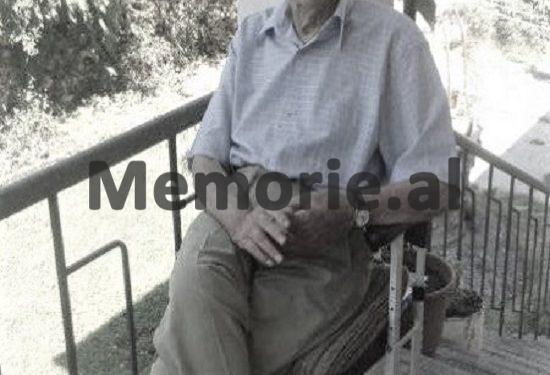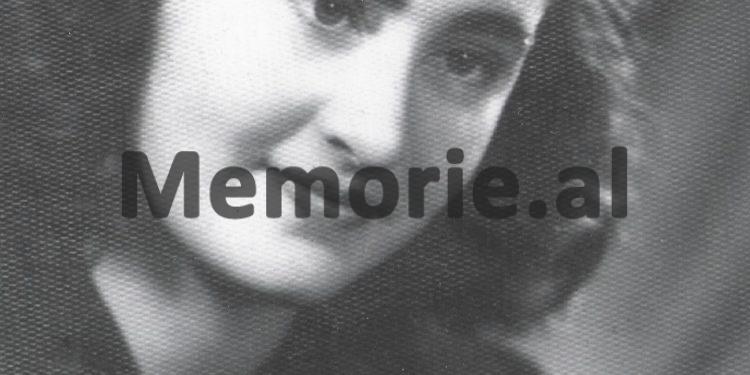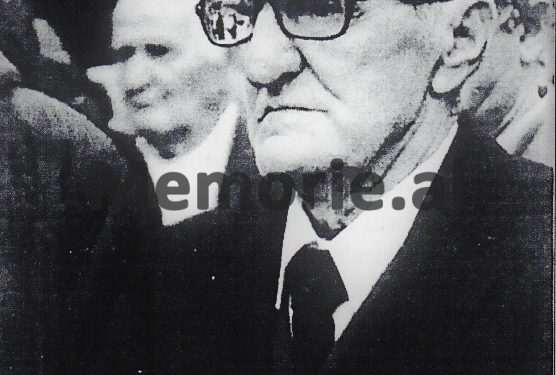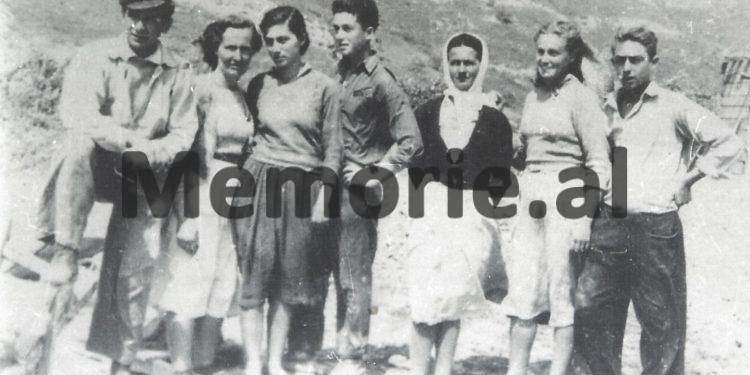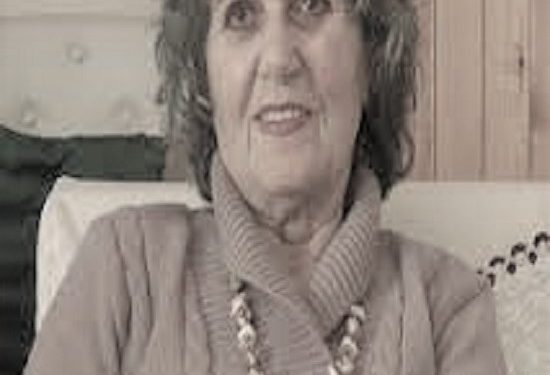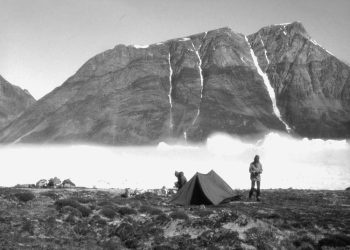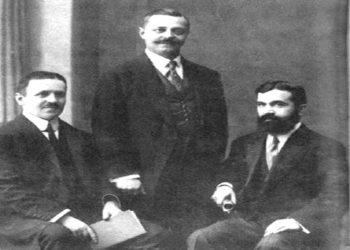Fatbardha Mulleti (Saraçi)
Part fifteen
Memorie.al publishes some parts from the book ‘Calvary of women in communist prisons’, by Fatbardha Mulleti Saraçi, (granddaughter of the famous former mayor of Tirana, Qazim Mulleti), whose family from 1944 until in 1991, he was persecuted by the communist regime of Enver Hoxha, where Fatbardha’s father, Haki Mulleti, a former senior state administration official since the 1920s, was imprisoned and interned by his family, until died in the hospital of Tirana, poisoned by the State Security. In her book ‘The Calvary of Women in Communist Prisons’, which is the fruit of several years of work, the author has masterfully described the unknown stories of some of the Albanian women and girls who suffered in prisons and internments in the dictatorial regime of Enver Hoxha, started by her mother, Pertefe Mulleti, and many others.
In addition to the above, the author Fatbardha Mulleti Saraçi, in her book, has described some of the tragic stories of some well-known families, mainly from Northern Albania (but also from Central and Southern Albania) such as; Gjonmarkaj of Orosh of Mirdita, Dine, Dema, Kaloshi, Ndreu, of Dibra, Pervizët from Skuraj of Kurbin, Miraka of Puka, Kola of Mat, Bushati, Pipa, Dërguti, Serreqi, Naraçi, Saraçi, Marashi, Gurakuqi, Çoba, Malaj , Vata, Deda, Vuksani, Kaçaj, Luli, Sokoli, Mushani, etc., of Shkodra and Malsisë e Madhe, Kupi, Merlika, of Kruja, Kërçiku, Mulleti of Tirana, Staravecka of Skrapar, etc., which were persecuted and were massacred in the most barbaric way by the communist regime of Enver Hoxha, parts of which will be published in the continuation of this cycle of articles by Memorie.al.
Continued from the previous issue
Dedë Gjon Gjomarkaj
His life was full of turmoil. The whole family in exile. In 1945 he was taken as a soldier, but imprisoned at the age of 22 (twenty two), sentenced to five years in prison, allegedly linked to the fugitives!!
When he was released from prison, he failed to meet with his family because the young woman was arrested. He was held for three years in isolation from the State Security in Tirana. From 1950-53 they pressured him to write a letter to his father (who was abroad), they wanted to make him a Security tool, to send him with activity, for diversion in the ranks of the Diaspora (in America).
Three years under torture, without food, without being left, he was about to die, his body swelled and he became severely anemic. Despite the tortures they inflicted on him, he remained strong and refused to become an accomplice, i.e. communist State Security tool.
When they saw that the anemia had progressed, then they put him on food, then took him to court and sentenced him for the second time, seven years in prison, ostensibly for attempting to escape !!
During this period, the mother and sisters who were interned did not know where their son was. Mr. Deda says: – “It was the most terrible period of my life. After I was sentenced for the second time, seven years, I was sent to Gjinokastra prison. Then they let me write a letter to my family to tell them where I was. “They did not know where I was.”
He tried the prisons of Vlora, Shkodra, Tirana, Gjirokastra and Burrel. He worked in all the extermination camps, where the prisoners were exploited as slaves, as in the Zadrima camp, in the construction of the dam in Bacel and Narac.
“A friend of the father came with his son to meet me” – says Mr. Deda – “As soon as Hilmi Saiti (Chairman of the Internal Affairs Branch) found out, he transferred me from Shkodra to the Tirana prison”. He worked in the Beden camp, in Maliq, in Orman, Pojan, at the Bona Bridge.
“In the Orman-Pojan camp, political prisoners worked to divert the Devoll riverbed, the most inserted into the canal, the base of the canal was 60 m. – says Mr. Deda – the two slopes of the canal were 100 m, the soil would be raised to make the embankment. All the work was done with wings, one man (i.e. a political prisoner), had the norm, to do 8 m.3 and, with a shovel. It would be transferred 8 m. 3 and by wheelchair, which was 100 m. away, which would be sent to the embankment. One road was 200 m., One m. 3 and was equal to 10 carts, i.e., one of the prisoners belonged to be 15-16 km. road per day, half full cart and half empty cart, that was the return.
The work was done only with shovels and wheelbarrows and they worked under the pressure of the police. The same was done in Vlashuk. At the Bona Bridge, located between Peqin and Elbasan, 6 hills were flattened to fill the canal opened by the Italians. The railway route near Peqin would pass over it. Soviet engineers did not build the bridge, but filled the land with soil, as the labor of Albanian slaves was not costly.
The hills were flattened with the wings and shovels of political prisoners. A prisoner had to transport 20-30 wagons with soil, under the guard cart, which usually used spruce wood, which was knotted. In 1956, with the Anti-Communist Revolution in Hungary, I was sent to Burrel prison, where I found honorable men of the nation, who were well-known – says Mr. Deda – like: Ejll and Kel Çoba, Shuk Gurakuqi, Ethem Cara, Shefqet Muka , the honorable Mr. Vuciterni, Nino Kurti, Akila Tasin with his brother. And when it came time to be released, they asked me: -Where do you want me to go?
I want you to unite me with my family – said Mr. Deda. But I was interned in Kuç i Kurveleshit, where I was kept for a year, prison food was given and heather stump was worked, which was used for çibuka. There I found exiled many prominent intellectuals, young and old, who had studied at European universities.
He was then sent to continue his internment in Savër, Lushnja. Mother Mrikë was waiting for him, but she did not know her son, Deda, she had not met him for 13 years…! From Savra they sent him to Gjaz together with his sister Marta and nephew Gjoni in exile, separated from the rest of the family. In Grabian they legalized the exile. Work in agriculture.
In Çermë – says Mr. Deda – I was in the construction brigade and we worked in all sectors of the farm “29 Nëntori”, such as: in Plug, Grabian, Çermë, Sulzotaj, Dushk, Gjaza.
In Gjaza, they were arrested in 1977, allegedly for agitation and propaganda. They had no charges against me, but forced some workers and a girl, as if she had told me they wanted to put me in the party. The young witness girl came out to me, she said: – Deda is fine and he lowered his head. Mr. Deda continues the story: – I was saddened by the desolate girl, because she was ashamed. I was sentenced to 10 (ten) years in prison, the motivation was known, ostensibly for agitation and propaganda. Back in jail. They sent me to the Ballsh camp, where my heart ached when you saw blind, crippled old people who had become disabled during the long years of prison, so they kept them, they did not release them…!
After the third prison was over, the door to exile reopened. He was now with his sister Martha and nephew John. Twice a day appeal, once in the morning and once in the evening. When I was released, he says – says Mr. Deda – I met Valentina, the young girl, who had been shot as a witness, I said: – Valentina, come on, come on, I do not care that you have witnessed me, that that job registrable, predetermined.
I was released only in July 1991; I was picked up by a driver from Shkodra. A big hail followed me on the way. It seems that it was the last storm, the ordeal of suffering that started at the age of 22 ended and he was returning home to the city of Shkodra, at the age of 67 (sixty seven). Tired, old, without starting a family. He is a man with a big heart, who suffered a lot, but his soul remains forever free. His whole being, his presence, radiates warmth, love, serenity, which can be bestowed by people with Great Spirit, the heroes who survived the tortures of the socialist-communist system of Albania.
Adnan Muka
Outline of notes from my memories of living in isolation and family internment (April 1945 – October 1946). (Memories of a 10 – 11 year old):
It was the last school year 1944-45, when I was a student in the 5th grade of the Women’s School “Ndre Mjeda” together with my sister Lirije (student of the first grade of the same school) they called us and ordered us to go home. At home we found non-family people, military (partisan) and civilians. They were piling up in the bedroom, the living room furniture and everything was dismantled, how much it is worth to use (relatively costly). The mother was collecting underwear (from a pair) for her five children, in two suitcases, as well as tying three ropes, sheets and two quilts, which were taken (loaded) to the wheelchair (pajtoni), which was waiting at the courtyard door. . Accompanied by father’s aunt, 70-year-old Jewel and some neighbors.
We got in the carriage and, accompanied by a partisan, headed to the center, where the families of the political fugitives were gathering, which was a two-story building and a small yard, with a large courtyard, in front of John Markajon’s tower and behind the new prison. . Mother Syme, 39, together with her children aged 4-15, based on a government order, left their home and property and started the ‘odyssey’ of internment, like many other families in Shkodra.
We were assigned to “live” the room on the second floor, on the left, with windows from the courtyard door and the castle. Five other families gathered in this room: in front of the door of the room were the Çoba family (old Pina with Kelin and Nuçi) and Kole Jakova with his wife Roza and Preka, on the left side of the room were the wife of Cafo beg Ulcinj ( Mejremja, with two little girls) and the wife of Xhelal Bushati (Sadija with three children: Gjylferoza, Eqerem and Fahrije). To the right of the room were the wife of Nazim Alltuni (from Kavaja) Vehibja, the daughter of Emin beg Barbullushi and the family of the name, Sheuqet Muka: mother Syme, brothers Meserret, Uran, me (Adnani) and two sisters Lirija and Nexhatija , a total of nineteen people.
From the families that gathered for internment, I remember that of Xhemal Najpi (six people), Shaqir Omar, Smajl Elez, Sali Myftis, Mark Malës (wife with children), Bep Negri, Dacët e Bahçallëkut, Pjetër Ganjolla (Sarreq) with Mark e sister Marija…., wife of Marin Sheldis with children Gac and Rroku etc. From Malësia e Madhe: Katrinë Tomja and the Dedaj family (Paloka, Deda, etc.), Nik Sokol’s family. A family of four who lived near the former gastronomy…
After a stay of one month (during this time) the families to be interned were determined, who had fled inside the country and abroad. We left with a convoy of trucks (to be discovered), to Berat. It has been days of eating, rainy.
Moments of memories from isolation
The attention of us children was attracted by: Kel Çoba, Prenk Jakova, Deda and Katrinë Tomja.
Kel Çoba was interested and gathered us to tell us stories and tales. He had a rich culture, full of life, they laughed, he was cheerful and he loved us.
Prenk Jakova with his accordion created an atmosphere of joy. Often through the sounds of the accordion he “conversed” with his brothers Deda and Cesku, who came out in the upper parts of the windows, closed with 2/3 of the wall, of the new prison. Deda old man, physically big and fat, always sat in a portable chair because he was disabled. Katrina Tomja highland, beautiful (handsome) bride, young and numerous ornaments on her chest, attracted everyone’s attention. The event that woke up, without turning on the lights, all of the isolated, was the commotion and the big noise coming from the New Prison, was the fight until the death of Caf Met and Ndue Mirash (Paul) with prison officers and guards, not to give, bind to bring them to the place of shooting, for they were to be put to death.
In that period there were frequent shootings (executions) and we (the isolated) knew that the day before tomorrow there would be shootings, because he always came in the evening and stood near the big door of our building a truck covered with raincoats .
Impression from the trip
The convoy of trucks moved slowly, the road was bad, potholed, and often stopped for the personal needs of children or even for food purchases.
We stopped in Kakarriq. The seller of a restaurant, Gjyl Mlika, as soon as he was informed that we were being interned, approached the cars and met Vehibe Alltuni and his mother. He offered us biscuits, candy and a tent.
We stopped in Lezha. This town was small at that time and right next to the motorcade people approached and the news immediately spread in the town. Aunt’s husband, Nazim Boriçi, approached us and helped us with food and a raincoat (we were soaked to the core).
Near the evening we arrived in Durrës, where we spent the night in an old building, damaged, with broken windows and no glass (it had been the post office of Durrës). I remember that Xhevdet Tirana (who was living in Durrës at that time) came to us and helped us to ask permission to take us home, to spend the night. We arrived in Berat on Wednesday and were unloaded at the cobblestone market square and in the ‘Prrue’ neighborhood near the mosque and Pasha’s house, a very large building, near the road leading to the castle.
In the rooms, the corridors and in every corner of it, the few belongings of the internees were placed, where the exhausted people also took their place.
I remember that the first night in Berat I slept in the hotel “Skrapari” and for a few more nights, some families settled in the hotel “Kolombo” in the city center (beautiful and luxurious building). A few days later the house was found for rent.
During our 18-month stay in Berat, we changed two apartments, the first in the ‘Prrue’ neighborhood and the second in the ‘Hysengjale’ neighborhood, in the house of the Mufti (Luan Mufti).
In Berat we found many interned families, all from the northern area. I remember these families: Llesh Marashi, Gjon Markagjoni, Abaz Kupi, Hysni Demës, Ben Elezit, Fiqiri Dines, Kaloshët, Kole Bibës and Pervizët from the Milot area. Memorie.al
The next issue follows




